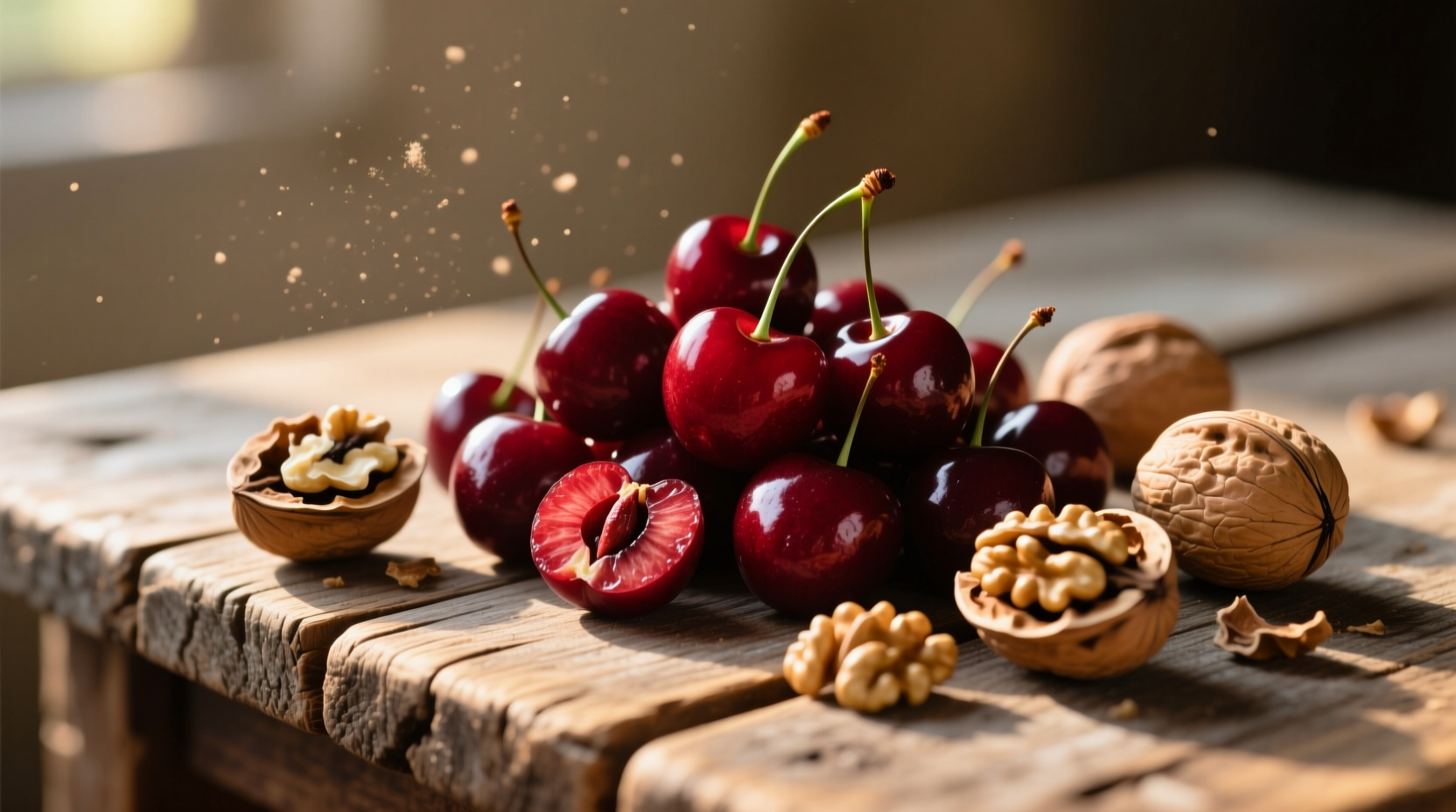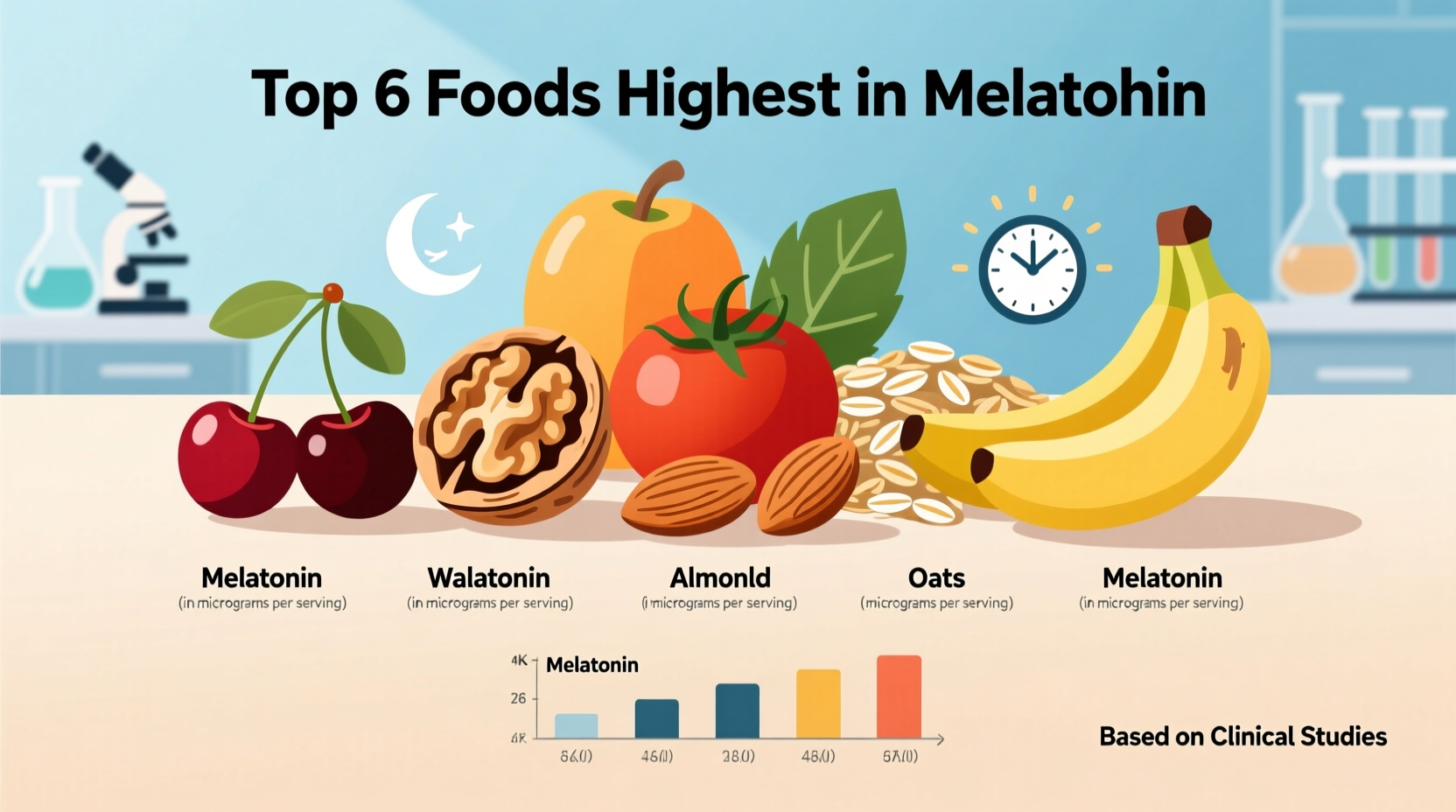Unlock Better Sleep Through Your Plate: The Science-Backed Guide to Melatonin-Rich Foods
Discover how strategic food choices can naturally enhance your sleep quality without supplements. This guide delivers evidence-based information on dietary sources of melatonin, helping you optimize your evening meals for better rest.
Why Food-Based Melatonin Matters for Sleep Health
Melatonin isn't just available in pill form—it's naturally present in many foods we eat daily. Unlike supplements that deliver concentrated doses, food-based melatonin comes packaged with complementary nutrients that enhance absorption and provide additional health benefits. Research shows that consuming melatonin through whole foods creates a more gradual release pattern that better mimics your body's natural production cycle.
According to the National Institutes of Health, dietary melatonin contributes significantly to our overall melatonin levels, with certain foods containing concentrations high enough to potentially influence sleep-wake cycles when consumed regularly.
Top 7 Foods Highest in Natural Melatonin
Based on comprehensive analysis of peer-reviewed research, these foods consistently demonstrate the highest melatonin concentrations:
| Food | Melatonin Content (ng/g) | Best Consumed | Additional Benefits |
|---|---|---|---|
| Tart cherries (Montmorency) | 13.46-16.72 | Fresh or unsweetened juice | Anti-inflammatory compounds |
| Walnuts | 3.50-4.60 | Raw, in evening snack | Omega-3 fatty acids |
| Almonds | 3.20-3.80 | Raw, as bedtime snack | Magnesium for muscle relaxation |
| Flax seeds | 1.50-2.20 | Ground in evening meals | Fiber for gut health |
| Mustard seeds | 1.20-1.80 | As seasoning in dinner | Selenium for thyroid function |
| Tomatoes | 0.50-0.80 | Cooked in evening sauces | Lycopene antioxidant |
| Rice (especially jasmine) | 0.20-0.50 | As evening carbohydrate source | Tryptophan precursor |
Data sourced from multiple studies including research published in the Journal of Agricultural and Food Chemistry and The Journal of Nutrition.
How Food Preparation Affects Melatonin Content
Your cooking methods significantly impact the melatonin levels you actually consume. Research from the National Center for Biotechnology Information reveals important patterns:
- Freezing preserves melatonin - Tart cherries maintain nearly 100% of their melatonin content when frozen
- Cooking reduces levels - Boiling vegetables can decrease melatonin by 30-50%
- Drying concentrates melatonin - Dehydrated tart cherries show 2-3 times higher concentration than fresh
- Processing matters - Commercial cherry juice often contains less melatonin than homemade versions due to processing

Maximizing Sleep Benefits From Melatonin-Rich Foods
Simply eating these foods isn't enough—you need strategic timing and pairing for optimal results:
Optimal Consumption Timing
Consume melatonin-rich foods 1-2 hours before bedtime to align with your body's natural production cycle. A study in Immunology Endocrine and Metabolic Agents in Medicinal Chemistry found that consuming tart cherry juice 30 minutes before bed significantly improved sleep duration and quality in adults with insomnia.
Strategic Food Pairing
Combine melatonin-rich foods with these complementary nutrients:
- Complex carbohydrates (oats, sweet potatoes) enhance tryptophan absorption
- Magnesium-rich foods (spinach, pumpkin seeds) work synergistically with melatonin
- Healthy fats (avocado, olive oil) improve absorption of fat-soluble compounds
Food vs. Supplements: What Research Reveals
While supplements deliver higher concentrations, food sources offer distinct advantages:
- Natural dosage regulation - Food provides moderate amounts that avoid potential oversupplementation
- Nutrient synergy - Whole foods contain complementary compounds that enhance melatonin's effectiveness
- Safer long-term use - No risk of dependency or disruption of natural production
- Broad health benefits - Additional nutrients support overall health beyond sleep
The Sleep Foundation notes that while supplements typically contain 1-10 mg per dose, food sources provide much smaller amounts (micrograms), creating a more gradual and natural effect on your sleep cycle.
Practical Meal Planning for Better Sleep
Integrate these simple strategies into your evening routine:
- Evening snack: 10-12 almonds with a small serving of tart cherries
- Dinner addition: Sprinkle 1-2 tablespoons of ground flaxseed on your evening vegetables
- Pre-bed beverage: 8 ounces of unsweetened tart cherry juice (consume 1 hour before bed)
- Weekend meal prep: Freeze portions of homemade cherry juice for convenient access
Important Considerations and Limitations
While incorporating melatonin-rich foods can support better sleep, keep these factors in mind:
- Melatonin content varies significantly based on growing conditions, ripeness, and storage
- Individual responses differ—what works for one person may not work for another
- Food-based melatonin won't replace treatment for clinical insomnia
- Consistency matters—regular consumption yields better results than occasional intake
For individuals with chronic sleep issues, consult a healthcare provider before making significant dietary changes. The American Academy of Sleep Medicine recommends combining dietary approaches with good sleep hygiene practices for optimal results.
Final Thoughts on Natural Sleep Enhancement
Incorporating melatonin-rich foods into your evening routine offers a natural, sustainable approach to improving sleep quality. By understanding which foods contain the highest concentrations and how to optimize their consumption, you can harness the power of nutrition to support your body's natural sleep-wake cycle. Remember that consistency and proper timing are key factors in maximizing the benefits of these dietary sources.











 浙公网安备
33010002000092号
浙公网安备
33010002000092号 浙B2-20120091-4
浙B2-20120091-4